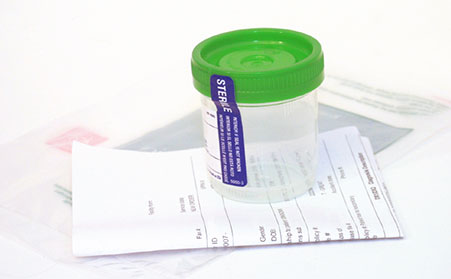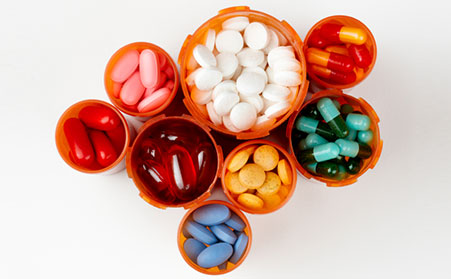Each healthcare professional determines the appropriate elements in the treatment plan for the patient.
A vital part of this plan is LabPro’s urine toxicology services, which allow healthcare professionals to design an individualized treatment program based on medical necessity.
For further guidance on medical necessity from a local coverage and third party payor perspective, please refer to the 2017 LabPro Annual Physician Notice. The information within the notice is intended to promote awareness of federal regulations, commercial payor medical policies, and to explain the requirement and importance for ordering providers to furnish appropriate documentation when ordering testing services. If you have questions about the this notice, we encourage you to contact LabPro for more information.
- Provides clinicians with information to determine the likelihood that the patient is taking their medication as prescribed
- All results reviewed by LabPro’s certifying scientists before being released
- Provides Toxicology specialists who are available for report consultation
- Provides experienced representatives to help integrate our program seamlessly into your practice
- Provides Benchmark Reports and Practice Profiles
- Online service, reports, and requisitions
The specimen’s integrity is verified by testing for proper pH values, specific gravity and creatinine to ensure it is a human sample and that it has not been diluted or adulterated.
A drug screens for the presence of various drug classes such as barbiturates, benzodiazepines, opiates, illicits and other prescribed or non-prescribed medications through Enzyme Immunoassay Analysis (EIA). This methodology provides fast initial results typically within 8-24 hours of the labs receipt of the specimen. However, EIA only allows for the results to be displayed qualitatively (positive/negative), does not provide the exact analyte that triggers the positive result, and are usually at a higher cutoff level than other technologies.
If necessary, the sample will undergo confirmation testing by utilizing state-of-the-art liquid chromatography tandem mass spectrometry (LC/MS/MS) equipment. This technology allows for extremely low limits of detection, the identification of the specific analyte detected in the patient’s specimen, and quantifies the exact level of detection. The utilization of this technology provides results physicians can trust.



